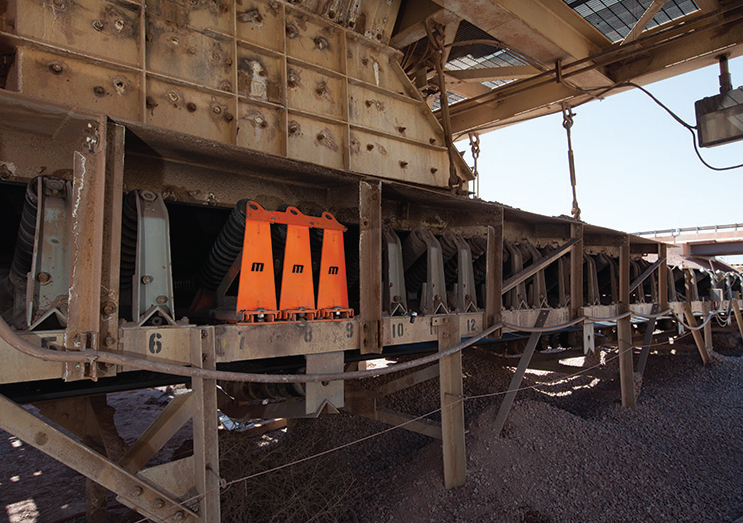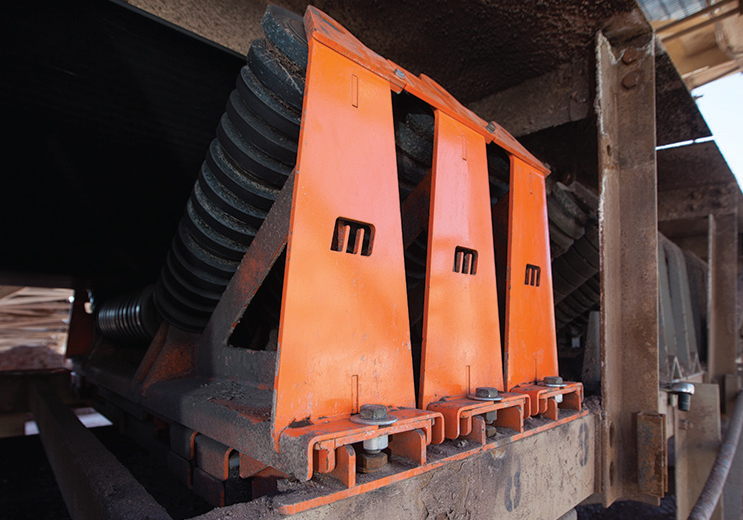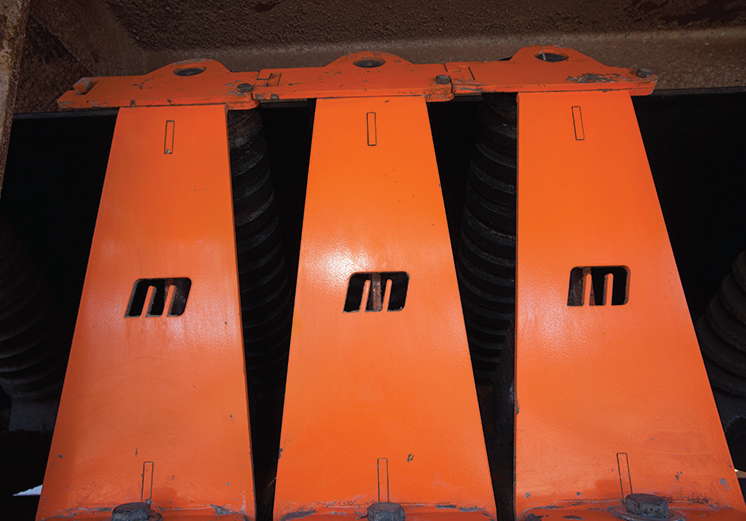Resources
| PDF - Printable Version of Case Study | Download |
| Product Types Used | Transfer Point Solutions , Belt Support |
|---|---|
| Industry | Mining |
| Customer | Copper Mine in Southwest USA |

A copper mine in Arizona is a mine-for-leach operation and produces copper cathodes. The operation consists of two open pits feeding a crushing facility with a capacity of 103,000 metric tons-per-day. The crushed ore is delivered to a single leach pad by a series of overland and portable conveyors.
At a conveyor transfer point handling 3⁄4-inch minus agglomerated copper ore with a 20% moisture content, a 72-inch belt perpendicularly feeds a 60-inch belt from a straight 12-foot drop. The customer was using standard OEM impact idlers in the load zone; however, due to the heavy loading conditions, mine personnel were forced to change four to five rolls and one to two complete frames per month due to component failures. The Idlers simply would not last, costing down time for repairs and replacements.

Martin installed a new test cradle on July 11, 2012. After seven weeks of operation during which 2.9M tons of material have been conveyed across the load zone, there have been zero component failures. The new cradles use Martin® Trac-Mount™ technology to slide-in and out easily for maintenance. The modular components are light enough to easily be removed by hand without having to use a crane to handle them.
The innovative load zone design uses an elastomer bar suspension system that absorbs and distributes the load of the material being transferred greatly reducing the stress on the idlers’ rolling components and supporting structure. Another patent-pending design innovation is the use of connecting brackets near the top of the idler frame to hold the three rolls together. These connector brackets are designed to allow multiple modular cradles to be tied together so that the idlers throughout the entire load zone work together as a system.

The plant manager thought the cradle was easy to install and the highlight is the ease of access to the center roller. The customer was impressed with how well designed and manufactured the cradle was. This cradle should cut down on overall maintenance time and make the task of changing rollers safer and easier for the customer.
The customer estimated that the new cradles paid for themselves in the first week of service due to the savings in maintenance and downtime.
| PDF - Printable Version of Case Study | Download |

While your problem seems unique and frustrating, with 70+ years of solving similar problems around the world, and with the most experienced and educated people on our teams, we can assure you that we’ve “Been There, Done That.” At least close enough to know what needs to be done next and adjust for your situation.
Put Us To The Test For Free! Let Us Give You a Solution.